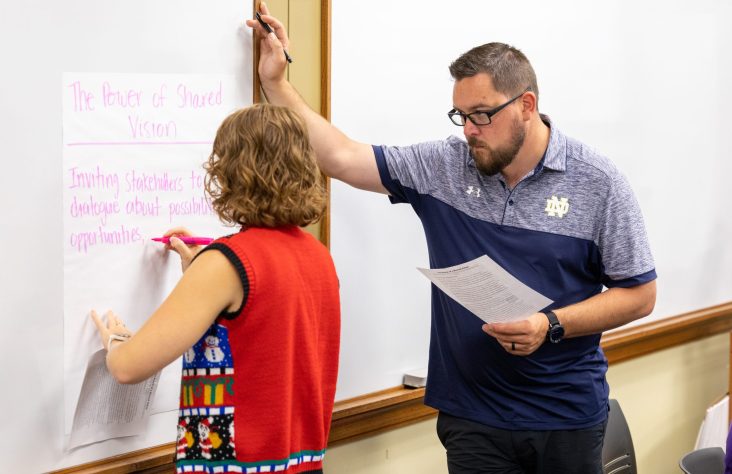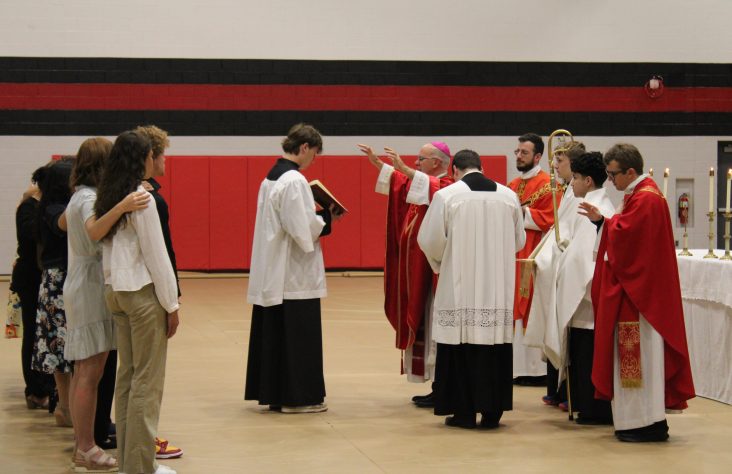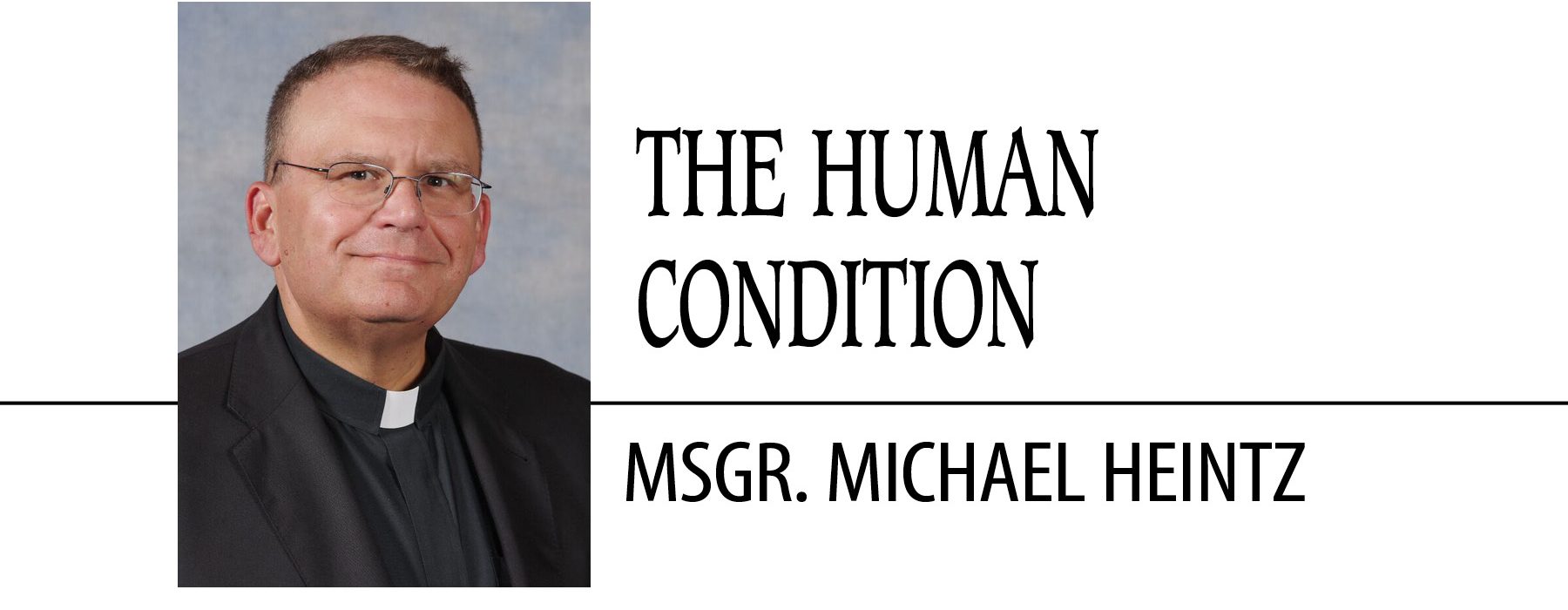September 14, 2022 // Perspective
You Never Really Pray Alone
There is no such thing as “private” prayer. There is – and certainly should be – deeply personal prayer, but really no such thing as “private” prayer. All Christian prayer, if it is true to its name, is initiated by the promptings of the Holy Spirit received in Baptism, who prays in and through the hearts of the baptized who together are constituted as the Body of Christ, the Church. Two things are worth noting here: first, all prayer begins with God’s initiative (it’s graced – in the Tradition, the Holy Spirit is often referred to as “uncreated Grace”); and, second, the Church is constituted by God’s action, not by mere human choice or conscious decision. Decision is obviously important, as the Gospel makes clear, in responding to Jesus, but it’s also important to remember that the invitation comes first. All prayer then, personal or public, is done in communion with the Body of Christ, the Church, as the Spirit draws us in Christ to an ever-deeper communion with the Father.
Public, liturgical prayer should shape, inform, and nurture our personal prayer. That is, rather than accommodating our experience of liturgical prayer to our experience of personal prayer – and thus asking, for example, whether the liturgy of the Church “meets my needs” or “touches me personally” – we should allow the public prayer of the Church continually to affect our experience of personal prayer, drawing us out of ourselves and uniting us more deeply to the self-offering of Christ to the Father. Our needs, like our tastes, should themselves be open to and subject to ongoing conversion.
The prayer of the Church par excellence is the Mass. The Eucharistic Liturgy, the Church tells us, is in fact the most effective thing the Church does. As Pope Benedict XVI made clear in his first encyclical, Deus Caritas Est, the entire social mission of the Church, its apostolates of active charity and social justice, for example, derive their purpose and meaning – and their eschatological effectiveness – from the Sacrifice of the Altar, where the fullness of Love is revealed not as a human ideal but as a Divine Person. That’s one of the reasons Mass is offered daily, and why Catholics are encouraged to participate regularly – even daily, when possible – at Mass. Ask anyone who, over the course of time, has had the opportunity to become a “daily communicant,” and each will no doubt tell you that the opportunity to celebrate Mass daily has made a profound difference in his or her life.
At every celebration of the Eucharist, Christ reveals Himself and is present in four distinct ways: in His Word proclaimed (it’s God, not merely the lector, who speaks to us when the Scriptures are proclaimed), in the person of the priest or bishop (who acts in persona Christi capitis, in the “person of Christ, Head of the Body, the Church”), in the assembled people of God, and most especially (maxime is the word used in the documents of the Church, literally, “most of all”) in the consecrated elements, the bread and wine upon which the Holy Spirit is invoked and which are substantially changed into the Body and Blood of Jesus Christ. It is this last, substantial and efficacious presence of Christ which in fact constitutes the Church and which makes Christ present among His people. So, it’s not that, because we have gathered as the Church that somehow the Eucharist reveals Christ’s presence; rather, it’s because Christ reveals Himself in the breaking of the bread (as He did to Cleopas and His otherwise unknown sidekick on the road to Emmaus), that we recognize Him as present in the assembled people of God. It is the Holy Spirit who constitutes the Church by configuring us to Christ through our sharing in the Eucharist. St. Augustine in one of his homilies suggests to his congregation that it is “their Mystery” which is placed on the altar and that they are to “become what they receive” – their identity (and ours) is derived from the Mystery of the Lord’s dying and rising, which St. Paul teaches we somehow carry within us as we trundle about from day to day. Our participation in the Eucharist is what incorporates us, quite literally, into the Body of Christ, the Church. There are of course many other modes of prayer and devotional life which distinguish the lives of Catholics: The Liturgy of the Hours, the rosary, Lectio divina, novenas, chaplets, and litanies, and a host of other ways of praying which adorn the Church. But this panoply of styles and approaches must all be seen as somehow participating in the one prayer of the Church, and always as taking their orientation from and ultimately leading back to, the celebration of the Eucharist.
Even when alone, one is never praying alone. There are times when a priest may celebrate Mass without a congregation. Even in such cases, we believe that the entire Church, including the angels and saints, is somehow present in that celebration. A homebound person who devoutly prays each day, even if living alone, is an integral part of Christ’s Body, the Church, at prayer, offering itself to the Father in union with Christ and by the power of the Holy Spirit. A lone high school sophomore, pausing to pray at the end of her long day of school and extracurriculars, prays in communion with the entire Church, whether she realizes it or not. All these individuals are not mere individuals when they pray: they pray as part of Christ’s Body, in communion with the whole Church on earth and, yes, even in heaven.
You never really pray alone.
The best news. Delivered to your inbox.
Subscribe to our mailing list today.






